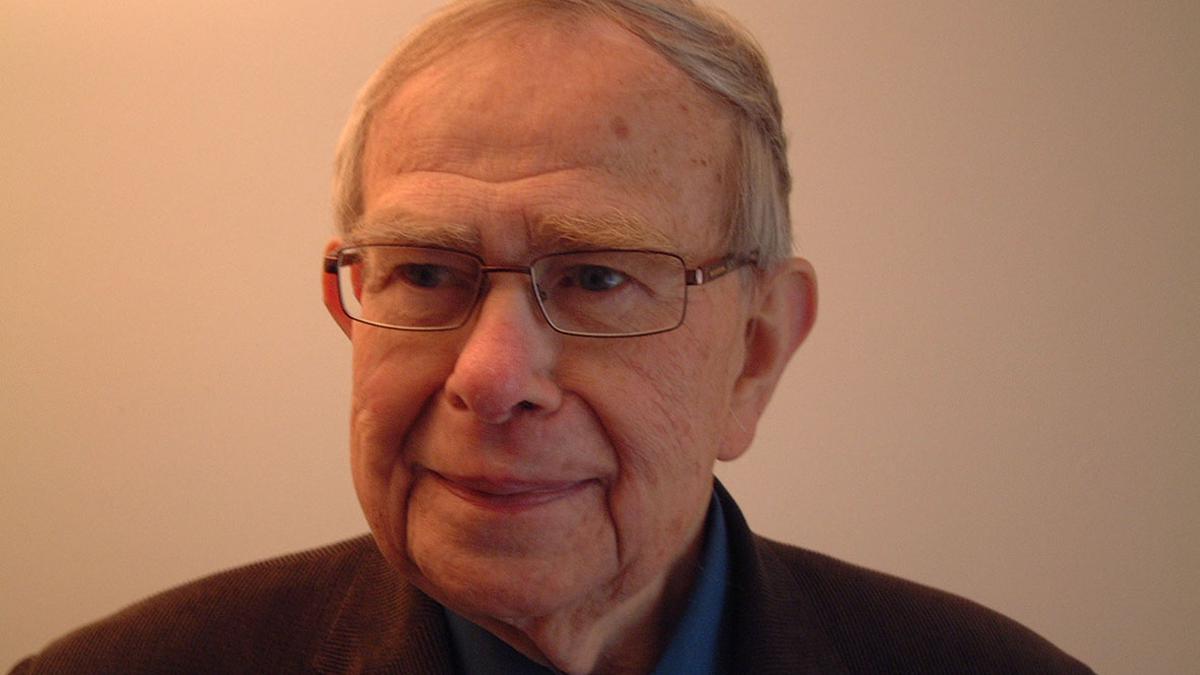
Bill Kirkman: his world and people
The Hindu
The journalist, who died last month at 90, was that rare human being who held a big vision for the world, but also touched individual relationships with his geniality
Looking like the proverbial genial uncle, Bill Kirkman would stride smilingly through the halls of a Cambridge college, his tweed jacket giving off an air of informality that belied the seriousness of the issues he was probably contending with in his head: whether it had to do with issues of an embattled local council, the college bursar missing in action or the failure of one of his journalism fellows to show up at an important seminar. Bill was always the master of straightening out things, of solving seemingly complex problems, all with an insouciance that belied an extremely weighty, lightning-quick mind that could strike at the heart of the matter.
ALSO Veteran journalist Bill Kirkman passes away
In recording his recent passing at the age of 90, The Hindu marked the death of a remarkable columnist, who for more than 20 years brought an incisive, inclusive, and analytical view of the world, people, and politics to its readers. His distinguished career as a journalist, editor, Cambridge University Fellow, and international media expert spanning continents and cultures, brought a significant heft to his opinions and perspectives.
As a young Oxford educated journalist, Bill worked as the Africa and later Commonwealth correspondent of The Times of London. He also contributed regularly to the BBC’s World Service and to its Africa Service, covering the exciting socio-political and economic developments of a rapidly de-colonising world. In the days when journalists had no mobile phones or email, Bill sent typed reports by cable and telegram to London while travelling exhaustively across the newly independent nations of Africa. Over the span of two years, he went to as many as 18 countries in Africa and reported on not just the challenges of new nation building but also on the devastating impact of hundreds of years of colonial rule. His book Unscrambling an Empire (Chatto and Windus 1965) strongly critiqued British imperialism, establishing Bill as a writer whose grounding in liberal politics and social justice was unshakable. Much of this flowed into his life and activities. He served on police boards, prison boards and school boards, always working assiduously and leading committees to bolster and reform systems at the local and regional levels. He would proudly call himself a “committee man”, and whether it was a village school committee or a quango, he brought an indefatigable spirit to the work of these groups and left his mark on them.
Bill was born in 1932 in Samastipur, Bihar, where his father had served in the Indian railways. Although his parents moved back to England some six months after his birth, being an honorary Indian was a matter of great pride to him (he even made a journey to Bihar some fifty plus years later and found a record of his birth at the local hospital). After the Africa reporting stint, Bill gave up fulltime journalism and moved back to the U.K. where he guided students to interesting career paths, first at Oxford University’s career services department and then at the University of Cambridge where he radically expanded the role of these offices to include pre-career skills training. In 1983, Bill was awarded an MBE for his services to journalism. Later, he was appointed Fellow at Wolfson College, Cambridge, and he was central to college life serving also as vice president of Wolfson College for several years. (He was Emeritus Fellow of the College till his death). He went on to set up an international Press Fellowship programme, that benefited hundreds of mid-career journalists from across the world and particularly the Commonwealth. In one instance, Bill came to the rescue of a young Press Fellow whose country was in the throes of a coup. The journalist had been put on a wanted list and Bill sheltered the young man until it was safe enough for him to return home.
When Bill began writing a column for The Hindu’s Sunday Magazine pages, nobody knew that it would go on for 20 years. Bill’s writing was sustained by two things: one was the variety of subjects that he dealt with, ranging from serious themes like race relations, policing, conflict, British and world politics, to humorously engaging with topics like English grammar, family relationships and the perplexing ways of youth. The second aspect that made his column sustainable was his unwavering commitment to reader response. His pieces frequently elicited detailed feedback, often from remote places, and he would connect with each person who wrote to him. During his visits to Chennai, for instance, he took it upon himself to meet many of his readers. One admirer was an elderly woman who was bedridden and living alone, and Bill unfailingly visited her on every trip to India. She wrote to say what a difference those visits made to her life. Bill was never self-indulgent in his writing; he was always self-critical and self-deprecatory except when it came to his jokes. He would laugh uproariously at his own jokes and when a granddaughter once asked why he did that he said. “Well, somebody needs to.”
Bill easily connected with people: no one was too big or too small. When Kenneth Kaunda, the former president of Zambia, visited Bill’s home in the U.K., he dropped his security protection and spent a happy afternoon in the Kirkmans’ garden, showing them the proper way to grow onions.













